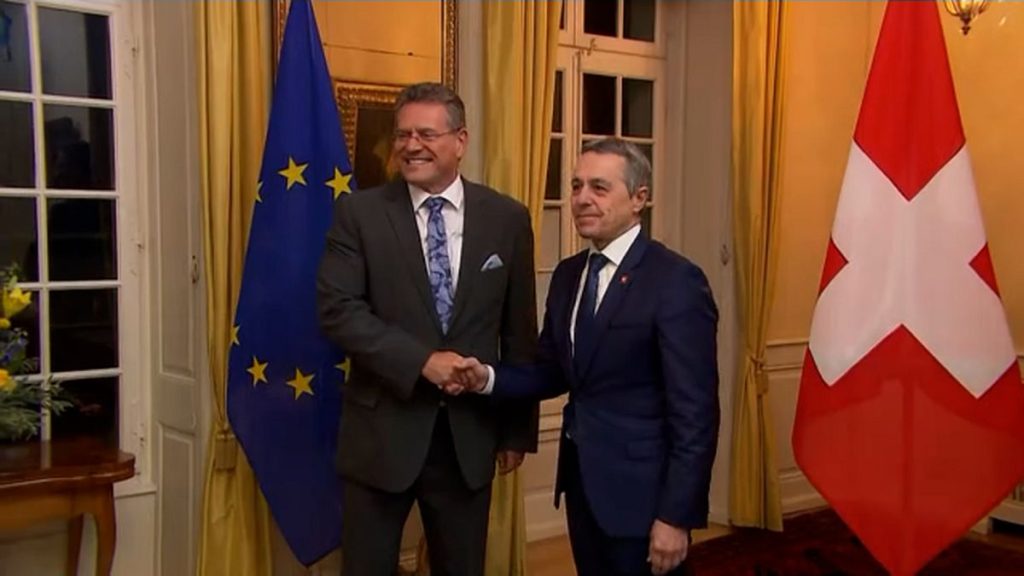Ongoing negotiations between the European Union (EU) and Switzerland revolve around Switzerland’s contribution payments, which are necessary for the country to maintain partial access to the EU’s internal market. Although Switzerland is not a member of the EU, it has established a framework of bilateral agreements that has allowed it to engage closely with the EU system, compensating for its non-member status with voluntary contributions to EU cohesion funds. These contributions are meant to support less affluent EU regions and ensure Switzerland’s strategic position within European markets is preserved. As Switzerland looks to solidify its economic partnership with the EU, top diplomats are engaged in high-level discussions to determine the scope and scale of these payments, showcasing a dynamic interplay between national sovereignty and economic interconnectedness.
Recent discussions indicate that both parties are moving closer to an agreement regarding the financial terms Switzerland will uphold in return for its market access. Following a meeting between EU Commission Vice President Maros Sefcovic and Swiss Foreign Minister Ignazio Cassis in Bern, it was highlighted that the negotiations are reaching their final stages, with both representatives expressing optimism. Cassis emphasized that the talks were at a critical juncture, specifically pointing out that clarifications on remaining issues were necessary for finalization. The commitment from both sides to wrap up discussions by the end of the year reflects their mutual desire to solidify the bilateral relationship, despite the complexities innate to negotiations between a non-member state and the EU.
The negotiations took place at Lohn estate in Bern and were following a joint dinner event, marking a significant diplomatic engagement amidst prior setbacks. One notable aspect of the negotiations is their rescheduling from an earlier date, which had to be postponed following substantial disagreements in bargaining positions. This history underscores the challenges that often arise during discussions that involve multiple layers of political, economic, and social considerations. The stakes are high for Switzerland, as the successful negotiation of contribution payments will significantly impact its economic relationships with its neighbors, as well as its domestic conditions.
In addition to resolving the contribution payments, there are calls from within Switzerland for more in-depth discussions surrounding issues like immigration and electricity. Local political figures, in particular, are focused on the EU’s application of a safeguard clause which would help regulate the influx of workers from EU states. This inquiry reflects a dual concern within Switzerland: the need for a robust economic partnership with the EU, balanced against domestic political pressures regarding immigration. While specific comments regarding these issues have not come from either Cassis or Sefcovic, it points to broader themes of sovereignty and regulatory control that are central to many discussions surrounding EU relations.
The delicate negotiations illustrate the broader complexity of Switzerland’s relationship with the EU, which seeks to thread the needle between productive cooperation and rising nationalistic sentiments regarding immigration. The country has historically positioned itself as a neutral entity in European politics, opting to remain outside the EU while pursuing agreements that allow for cooperation and market access. As such, Switzerland’s contribution payments not only symbolize an economic transaction but also reflect deeper questions of identity, autonomy, and the evolving nature of European integration in a post-Brexit era.
In conclusion, the ongoing talks between Switzerland and the EU are critical in defining future economic and political relations for both parties. The focus on contribution payments, combined with a broader discussion on immigration and other key issues, highlights the multifaceted nature of these negotiations. As both sides aim for a resolution by year-end, the outcomes will likely have lasting implications for Swiss policy, EU cohesion strategies, and the intricate balance of power and cooperation in Europe’s changing landscape. The negotiations serve as a microcosm of the larger debates facing Europe, where regional integration and national sovereignty are often at odds, necessitating careful navigation through dialogue and diplomacy.














